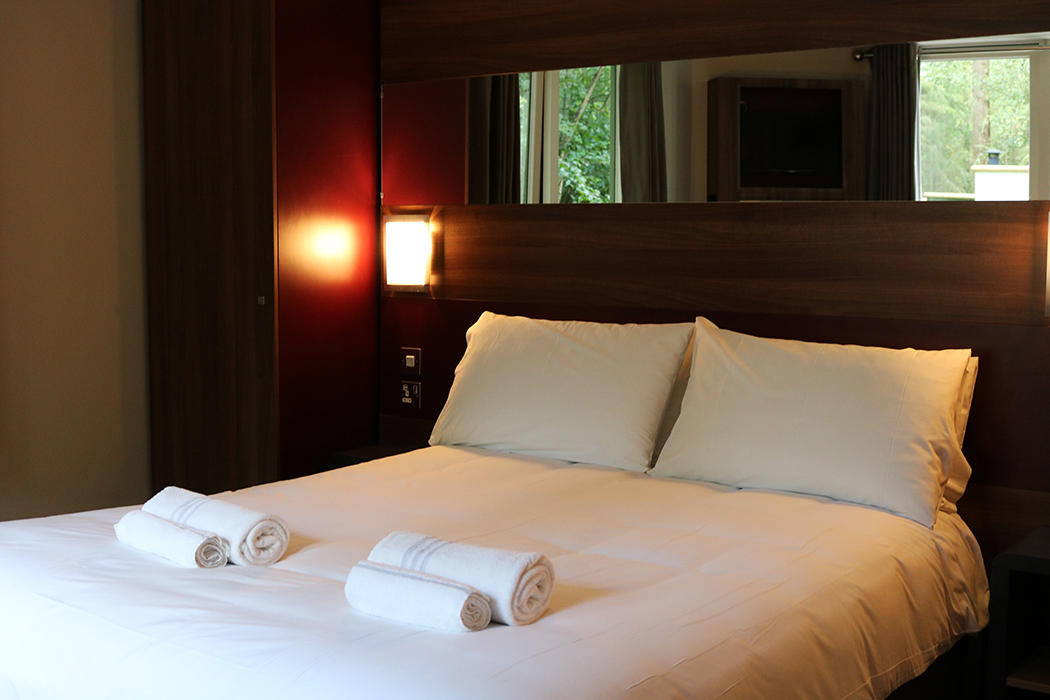Difficulty sleeping is an all-too-common problem. Unfortunately, there are many reasons why people have trouble sleeping. Stress, sleep disorders, and discomfort are just a few examples of common sleep troubles. Furthermore, when you don’t get adequate rest, it can negatively impact your physical and cognitive health. Therefore, you want to ensure you are doing everything you can to get better sleep.
AD | Collaborative feature
If you aren’t resting well, we will go over six sleep problems and how to solve them. We will cover a variety of issues that affect sleep, including some well-known disorders and lifestyle factors.
Insomnia
Insomnia is an issue that many people experience at one point or another. Stress, medication, pain, and anxiety are some of the culprits behind this disorder.
However, there are a few things you can do to get better sleep if you have insomnia. First, make sure your sleeping environment is dark, quiet, and cool. To prevent any light from creeping in, you can invest in blackout curtains or an eye mask. Earplugs can help cancel out unwanted noise, and to help your bedroom stay cool, try opening the windows, running a fan, or turning on your air conditioning system.
Second, establish a regular sleep schedule and stick to it as much as possible. Therefore, you’ll need to go to bed and wake up at the same time every day, including weekends. A consistent sleep schedule will help regulate your internal clock so that you should feel more sleepy when your bedtime rolls around.
Third, avoid caffeine and alcohol before bed. Both of these substances can interfere with your ability to fall and stay asleep. Caffeine is a stimulant that can keep you up, and although alcohol may help you doze off, it can lead to more disrupted rest.
If your insomnia results from joint or back pain, you should make sure your mattress helps to alleviate these issues. For joint discomfort, invest in a mattress with quality pressure relief. Memory foam beds are popular for this since they are made to conform to the sleeper’s shape, providing a comfortable cradle. To combat back pain, you’ll need a mattress that offers exceptional support with either a strong foam or coil base.
As mentioned, stress and anxiety can also lead to insomnia, which is why it’s important to find ways to relieve stressful or anxious thoughts. One suggestion is to establish a calming nightly routine to help you wind down. Not only should this help you feel more sleepy, but it can reduce stress as well. Some examples of relaxing activities before bed include reading a book, drinking herbal tea, taking a warm bath, meditating, or doing light stretching. Find what works best for you, and then stick to that.
Snoring
Snoring is a common problem that can have serious health implications. It is caused by the vibration of tissue in the throat as you breathe in and out. Furthermore, if you sleep with a partner, this could be disruptive to their rest as well.
There are a few things you can do to try to stop snoring. First, consider your sleeping position; sleeping on your side can help decrease any throat tissue contact and lower the risk of snoring. However, if you struggle to sleep on your side, invest in some body pillows or a good pressure-relieving bed to provide extra comfort.
If changing positions isn’t enough to stop the snoring, you should speak to your doctor. They may suggest a nasal strip or suggest some lifestyle changes. For example, losing weight can cut down on the amount of extra throat tissue that might vibrate while you sleep.
Restless Legs Syndrome
If you experience uncomfortable sensations in your legs when lying down to rest, you may have Restless Legs Syndrome (RLS). When someone has RLS, they experience an overwhelming urge to move their legs, and this feeling typically emerges at night, making it harder to doze off.
According to the Mayo Clinic, baths, massaging the legs, hot or cold packs, a comfortable sleep space, exercise, cutting caffeine, and using a foot wrap should help reduce symptoms. However, if your condition persists or gets worse, consider talking to your doctor, who may recommend a medicine to help manage your RLS.
Sleep Apnea
Like snoring, sleep apnea is another upper respiratory problem that affects the quality of your rest. Sleep apnea causes you to stop breathing intermittently during sleep, leading to short periods where you don’t get enough oxygen. As a result, you may way up frequently and then feel exhausted the following day.
If you think you may have sleep apnea, it’s important to consult with your doctor. A few treatments are available for sleep apnea, including Continuous Positive Airway Pressure (CPAP) therapy or surgery. CPAP therapy is the most common method as it uses a mask to deliver pressurized air into your nostrils, which can help open your airways and provide more oxygen throughout the night.
Jet Lag
Jet lag is a common problem for travelers and results from crossing time zones too rapidly, which throws your body’s natural sleep rhythm off balance. As a result, this can cause feelings of fatigue, confusion, and irritability.
To help minimize the effects of jet lag, gradually adjust your sleep schedule to that of your upcoming destination. Secondly, try to sleep on the plane if it is nighttime at your destination to help you get on track. And lastly, make sure to stay hydrated while also avoiding disruptive caffeine and alcohol.
Shift Work
The night shift can be very difficult for some people because working overnight means sleeping during the day. Our internal clock is normally programmed to be awake when it’s light out and asleep when it’s dark, and therefore, shift work goes against that natural rhythm.
There are a few things you can do to try to make the adjustment to night-shift work easier. The first is to stay on your regular sleep schedule as much as possible so that your body becomes used to it. Shift work can feel extra draining on your body, so remember to prioritize exercise and eat healthy foods. If you struggle to sleep during the day, you can use blackout curtains to help keep out the daytime light.





